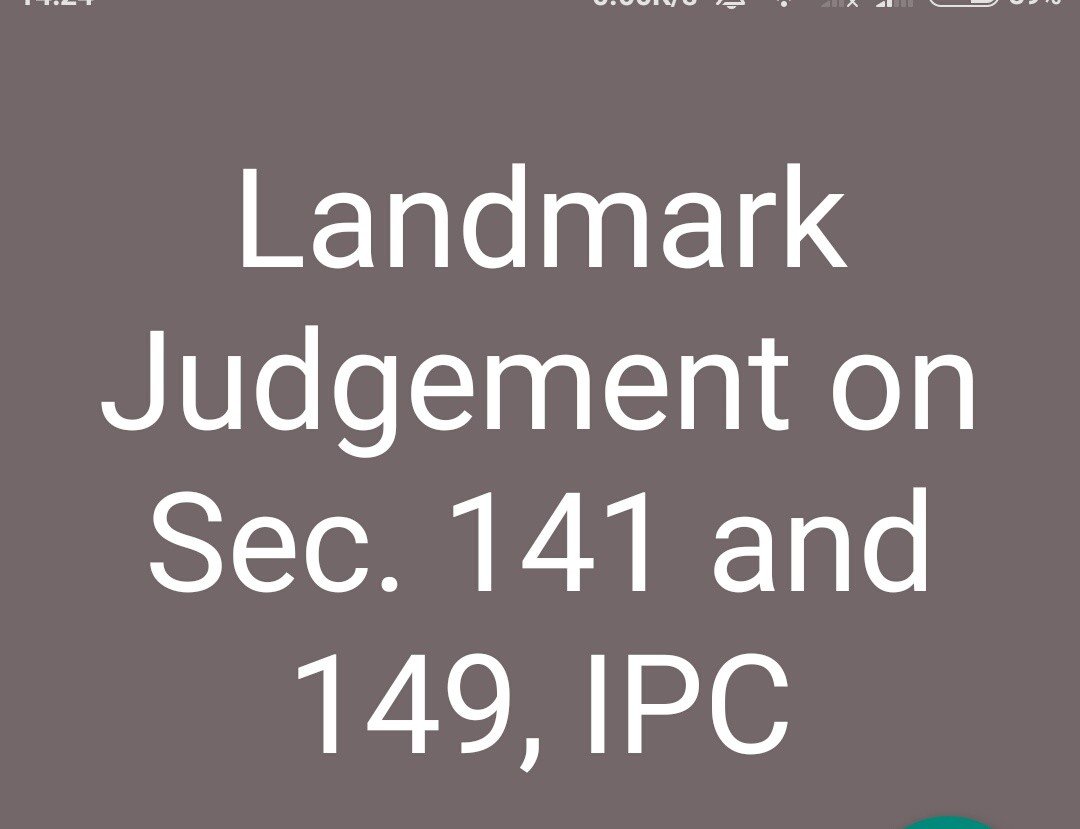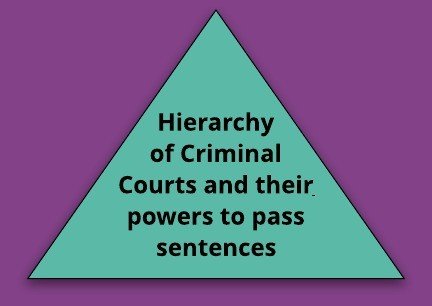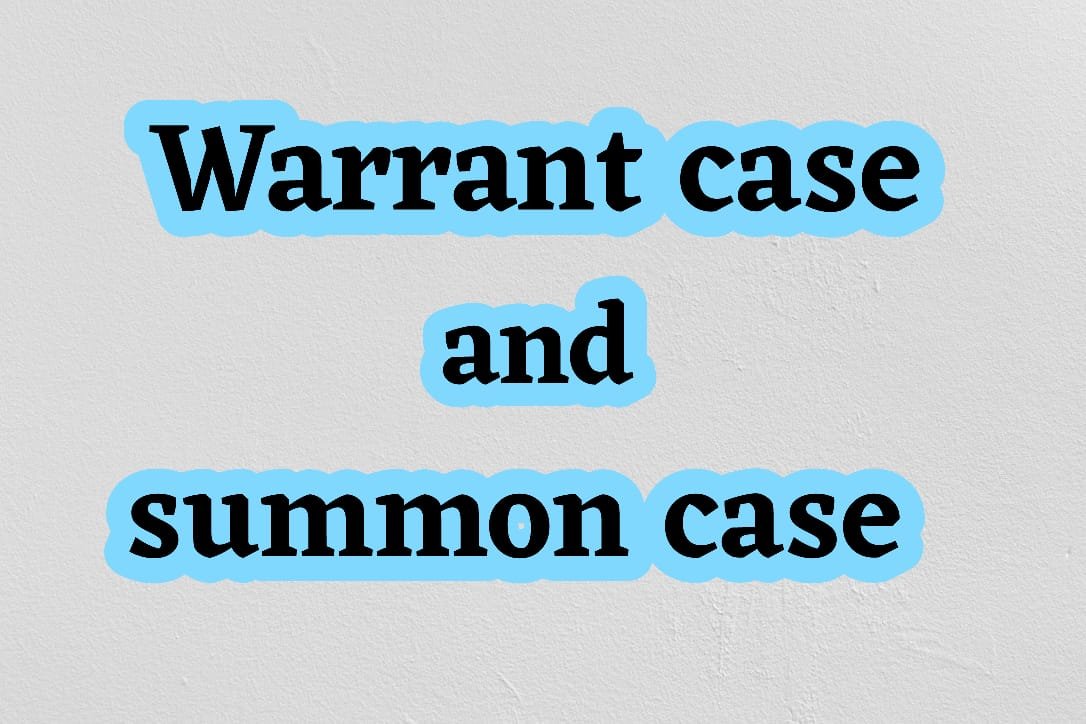Criminal law
Distinction Between Cognizable and Non-Cognizable Offence
Distinction Between Cognizable and Non-Cognizable Offence Cognizance means knowledge, whereas offence means anything which is declared unlawful. In legal terms, the acts which are declared....
Landmark Judgment on Section 141 and 149 of IPC
Landmark Judgment on Section 141 and 149 of IPC Ingredients of Unlawful Assembly in India – Section 141 of I.P.C. Ingredients: (i) An assembly of....
Important Supreme Court Case on Anticipatory Bail- PART- III
Anticipatory Bail- PART- III Important Supreme Court Case on Anticipatory Bail Landmark Supreme Court Case on Anticipatory Bail. The CrP.C. does not define the words....
Important Supreme Court Case on Anticipatory Bail-PART-II
Anticipatory Bail Case PART-II 41.....
STAGES OF CRIMINAL TRIAL- With Short Explanation
STAGES OF CRIMINAL TRIAL- With Short Explanation STAGES OF CRIMINAL TRIAL UNDER CrPC Normally a Criminal Trial has to travel through main stages from the....
Hierarchy of Criminal Courts and their powers to pass sentences
Hierarchy of Criminal Courts and their powers to pass sentences 1. SUPREME COURT (Any sentence authorized by law) 2. HIGH COURT (Any sentence authorized by....
Overview of Charge (ALLEGATIONS) under CRPC
Overview of CHARGE (ALLEGATIONS) under CRPC Introduction The charge is the establishment of the allegation(s) against the accused in a criminal case. The inspiration behind....
Difference between procedure of trial for Warrant and Summon Case
Difference between procedure of trial for Warrant and Summon Case INTRODUCTION In cases instituted on a police report, a lot of record made during the....
WHAT IS BURDEN OF PROOF UNDER THE INDIAN EVIDENCE ACT
WHAT IS BURDEN OF PROOF UNDER THE INDIAN EVIDENCE ACT Burden of proof Introduction – Chapter VII, S.101 to S.114 of the Indian....
Theft, Robbery, Extortion, Dacoity under Indian Penal Code, 1860
Theft, Robbery, Extortion, Dacoity under Indian Penal Code, 1860 The terms robbery, theft, and even extortion seem very similar and even used interchangeably or apparently....














